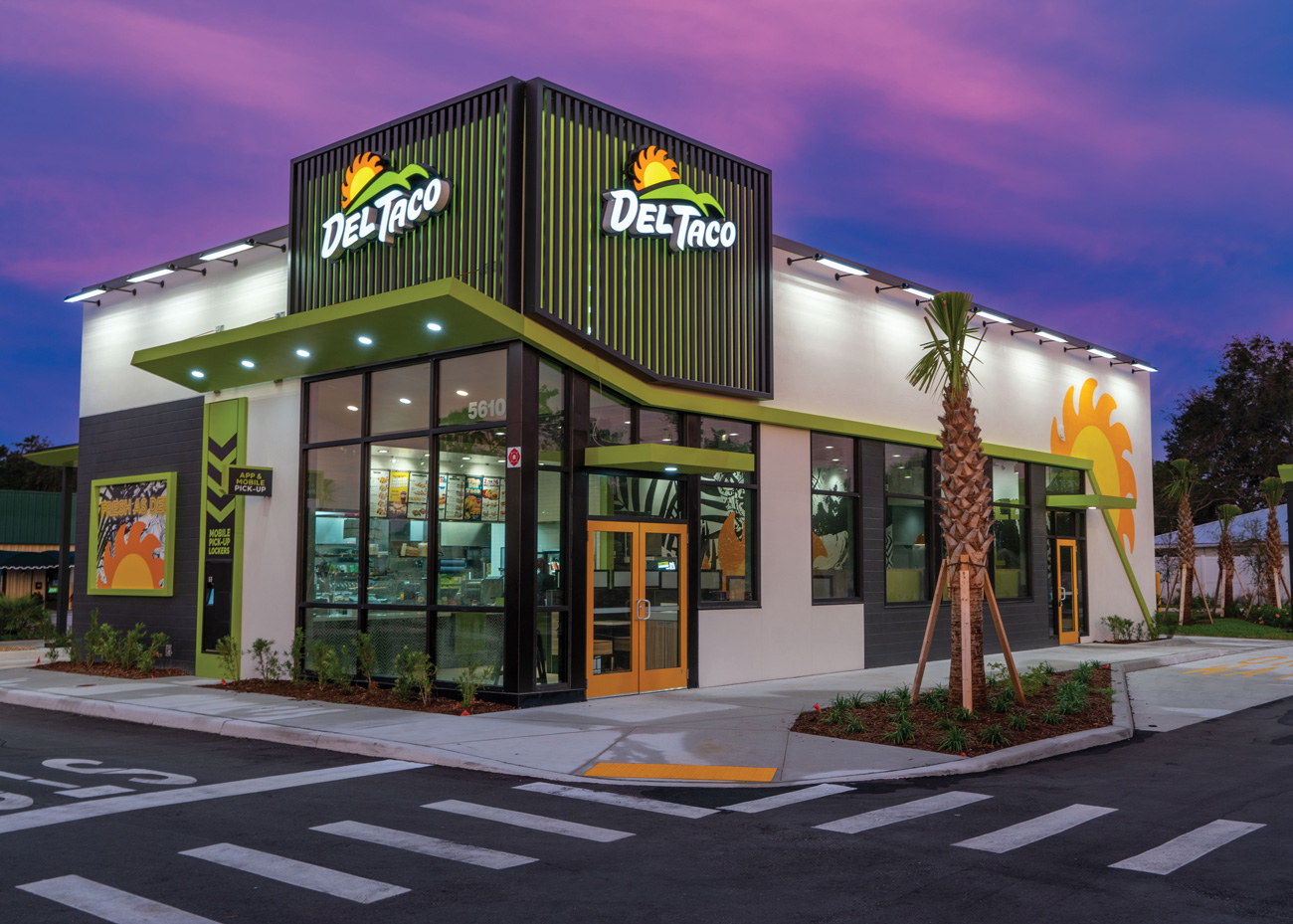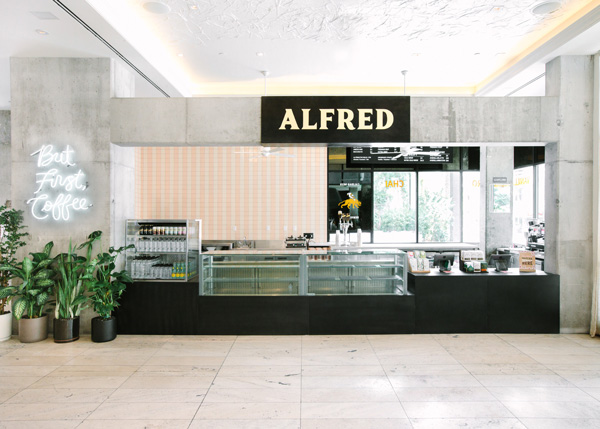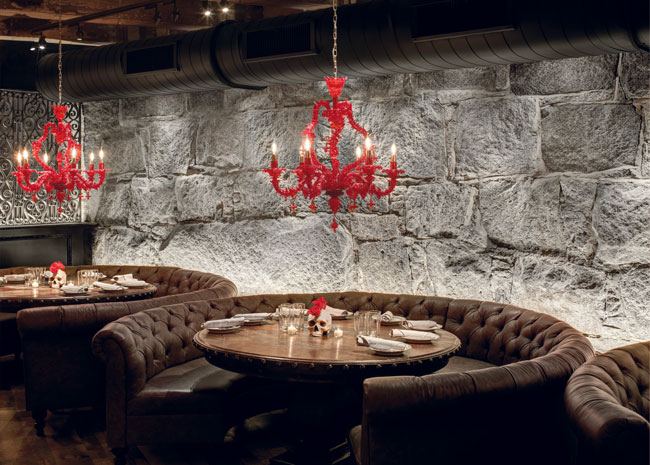 Van IngramDel Taco is on a development journey. The chain was acquired by Jack in the Box three years ago, giving it a strong backbone of 2,200 locations to strengthen Del Taco’s 600 stores. And according to market research company Datassential, Mexican is in the top five fastest growing concepts, so it’s a good time to expand.
Van IngramDel Taco is on a development journey. The chain was acquired by Jack in the Box three years ago, giving it a strong backbone of 2,200 locations to strengthen Del Taco’s 600 stores. And according to market research company Datassential, Mexican is in the top five fastest growing concepts, so it’s a good time to expand.
And Del Taco shows no sign of slowing down. The chain experienced record-breaking openings at stores last fall in Port Orange, Fla., Tallahassee, Fla., and Chesapeake, Va. First-week sales at each of these locations were higher than the chain had ever seen before.
Here, Van Ingram, Del Taco’s vice president of franchise development, dives into how the brand is achieving success in an increasingly competitive marketplace.
Del Taco is expanding quickly. How many units are you opening?
VI: We opened 14 new units in our fiscal year (that ended October 1st), and we’re really going to ratchet up over the next few years. In the last year we’ve signed over 274 new franchise commitments and 203 are with new franchisees coming into our system — coming in or taking over Del Tacos locations.
A lot of these franchisees own other concepts, like a burger concept, or they’ve run the course in that chain. So they come to Del Taco for white space availability.
Over the next few years our targets are going to significantly increase and our pipeline is full.
What does that growth look like geographically? What determines any new markets you go into?
VI: We’ve opened in a combination of new markets, and we are also backfilling — a significant number of those openings were backfilling in California where Del Taco has its greatest strength. And we’re seeing significant expansion into Florida — Orlando is a key market for us. We’re also expanding into Houston, where we don’t have locations at this point.
Because of the success of the QSR Mexican category, we can go into a new market and develop urban, suburban, secondary markets. The key thing we’re looking for is demographic and psychographic profiles — we want people looking for value, at a lower price point than a traditional Mexican restaurant.
We’re looking for families with children, a good mix of blue-collar employees and moderate incomes. We also look at the competition. If Taco Bell does extremely well in a market and wants to capitalize on that, they won’t see a Del Taco in the area.
Currently, Del Taco does not have any locations in airports or colleges, though we are open to exploring opportunities in those areas. However, we do have units in convenience stores and travel plazas. These locations are an important part of our footprint.
Three of your new units set new company records for first-week sales. What led to that?
VI: We have a new market playbook that’s more than 100 pages long and details how to open, how to use social media to drive awareness of what’s going on, and how to solicit employees. So, we have a really strong program to pre-market it, market once it’s open, and to sustain that.
As we go into new markets, we need to help our franchisees open strong. A few months before they open [franchisees] get a designated new store opening coordinator. Next, our training and development team trains the managers, then in comes a Strike Team, which is an experienced set of operators who help train the hourly employees.
You only get one chance to make a first impression. You want some experienced people in the restaurant to work with the new employees. In a state like California where we have a lot of stores, we can pull someone over from another store. But when we open in Florida, we may not have anyone to pull over from busy locations so we’ve amped up our training program for that initial crush of business — and to sustain that business.
Once you’re open, you get a franchise business consultant assigned to you and a regional marketing manager, and those two people help you continue the business. They are the conduit to all the resources within Del Taco.

How does Del Taco find franchisees, and what do you look for in them?
VI: We have a very robust online program. When people look for franchises, they will see information about Del Taco. Then we put [potential franchisees] through a very structured process and show them all the details about the franchise opportunity. We have a strategic market plan, and we show them the trade areas we want to explore. Our real estate team then helps them find a site.
We’re looking for people with business acumen who can manage people and a business. A lot of people already own other restaurants and we’re just as likely to work with someone who has hotels or convenience stores — other transactional services where they deal with customers. We’re just looking for a cultural fit: Do they understand what we’re trying to accomplish? Are they committed to our values?
We had over 3,000 inquiries in 2024. We try to work our way through those people and make sure we’re finding good brand citizens, good brand stewards, who match up with the cultural considerations we have, and who understand development and operations.
You look at all the skills we expect — marketing, training, legal, dealing with general contractors — there are so many different skill sets. There’s no person who is going to show up with all those skills. We as a franchisor need resources that augment the skills franchisees show up with. One person might have good marketing and communication skills and we can show them how to operate the restaurant. We look at what have they done to be successful and consider how can we take our success with 600 units and augment that for them?
A common reason they’re rejected is we require a three-unit commitment, and some might not be ready for three. My team must be a good steward for the brand. It’s about bringing in well-capitalized franchisees. We take them through an exhaustive process, and we explain the positives and negatives of being a franchisee. We want someone who understands what they’re getting into.
They need some business skills and need to be able to manage a diverse workforce and operations. We find out if they are comfortable dealing with people, with 24/7 business, with drive-thru. We like to see they have some drive-thru experience since 70% to 80% of business goes through the drive-thru and you have to be comfortable with that, as well as third-party delivery.



